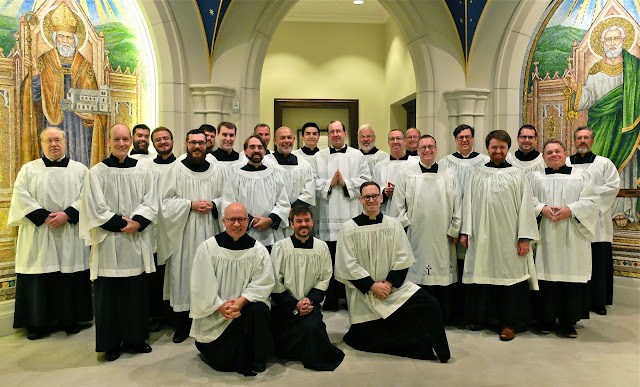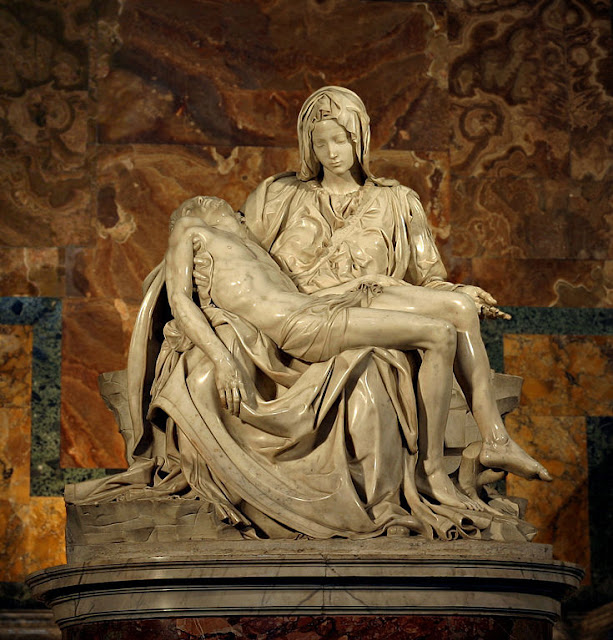Toward Liturgical Literacy: guided by beauty.
 |
| Divine Worship, Mount Calvary Church |
Janet Meyer at Catholic Stand reminds us about a proper orientation of the Sacred Liturgy.
Meyer: Music at Mass, as with everything else in worship, should point to God, not to the musicians.
One emendation: we are supposed to present the music of the Mass, not merely present music "at" Mass. There are prescribed texts, chants that necessarily should be represented in Catholic liturgical worship. Sadly, too many music ministers and priests miss that nuance. Until a proper literacy of the Mass is recovered, achieved, we will be stuck with slack impositions that obscure the character of a given Mass and which submit the Mass to the whim of (well intentioned?) individuals. That said, the Ordinariate Mass relies on its proponents to be well acquainted with the notion of proper chants and the prescribed texts of the Mass. If you are drawn to authenticity, then the Ordinariate Mass, i.e., Divine Worship, will offer you the opportunity to "worship God in the beauty of holiness. (Psalm 96:9).
Meyer, herself guided toward an integral understanding of the Mass, narrates an experience which pointed her to the thought of prominent philosopher Sir Roger Scruton.
Marissa Meyer, MM, is a cantor at St. Mary of the Seven Sorrows Catholic Church and Church of the Assumption in Nashville, TN. She is also my daughter, the person who gifted me with the CD I mentioned at the beginning of this article. I asked her for her thoughts about worship and music.
First, she pointed me to a video by Roger Scruton called Why Beauty Matters. She tells me that every time she watches it she learns something new. After viewing it with her, I agree. I highly encourage you to watch it as well.
Mr. Scruton begins by explaining that in the past, people thought of beauty as the aim of poetry, art, and music. He goes on to say that people once considered beauty “a value as important as truth or goodness.” In the 20th century, according to Scruton, the goal of art changed. The aim of art was “to disturb and to break moral taboos.” He seems to make a connection between the downfall of art and our moral failings.
Scruton gives many examples of how we have turned our back to beauty. He speaks of how works of art are now about creating a brand. He talks about the ugliness we surround ourselves with.
Why not "waste" an hour of your time and bring yourself closer to the Catholic understanding of worship, and how beauty—one of the transcendentals—lures us into a deeper communion with Jesus Christ and His Church.
.jpg)





Comments
Post a Comment
Your comments will be appreciated and posted if 1) they are on topic and 2) preserve decorum.
Stand by your word.